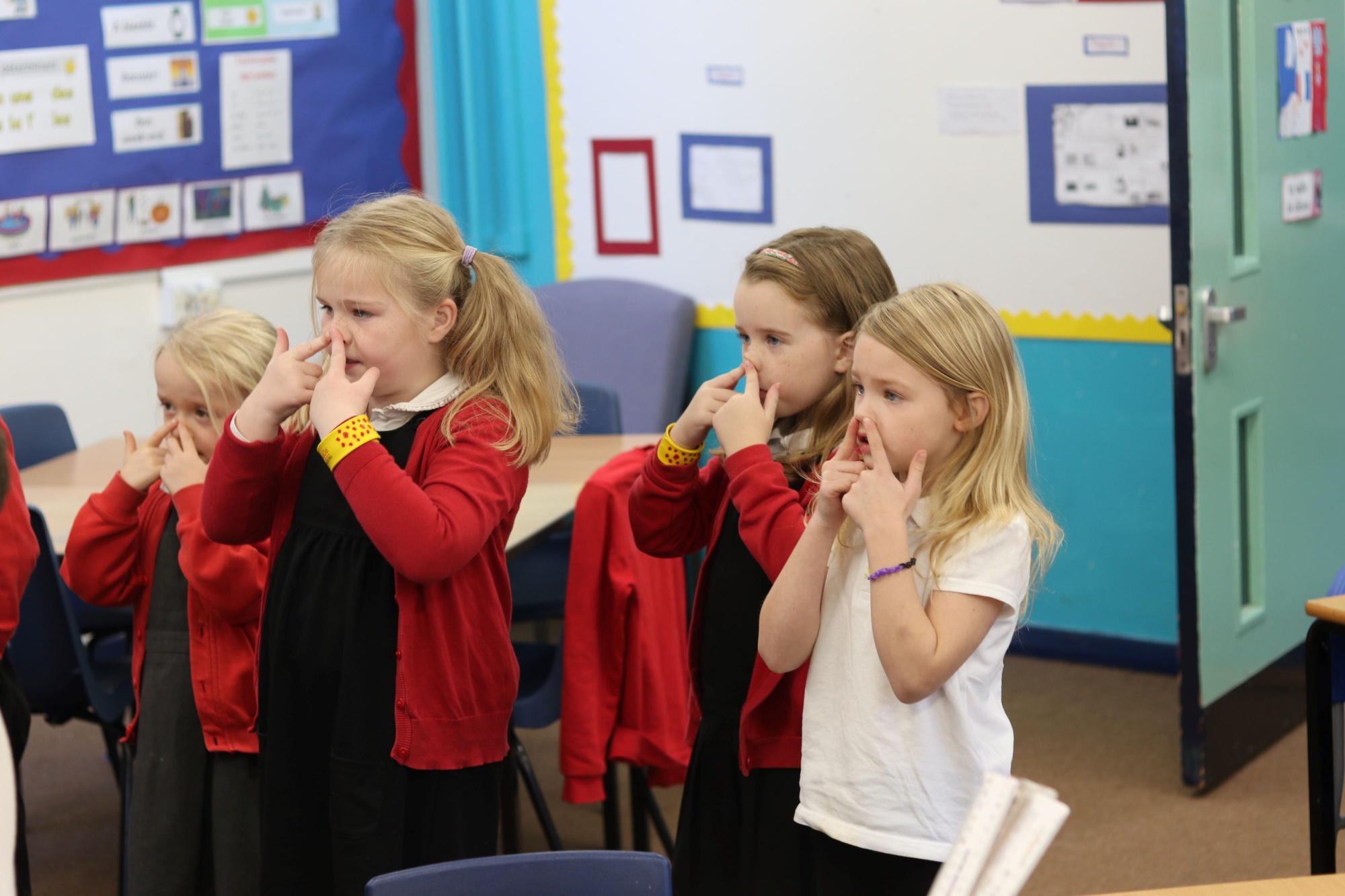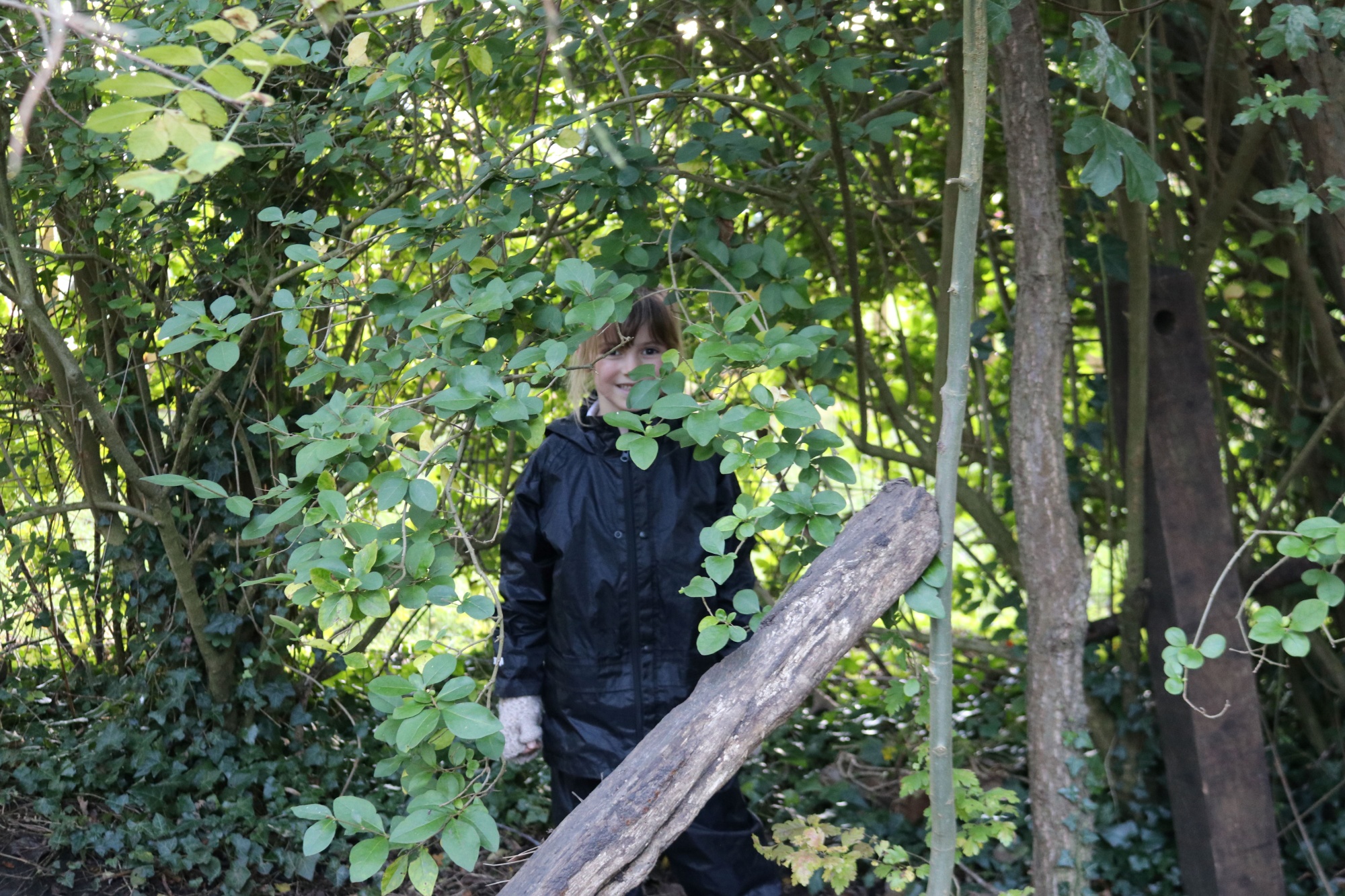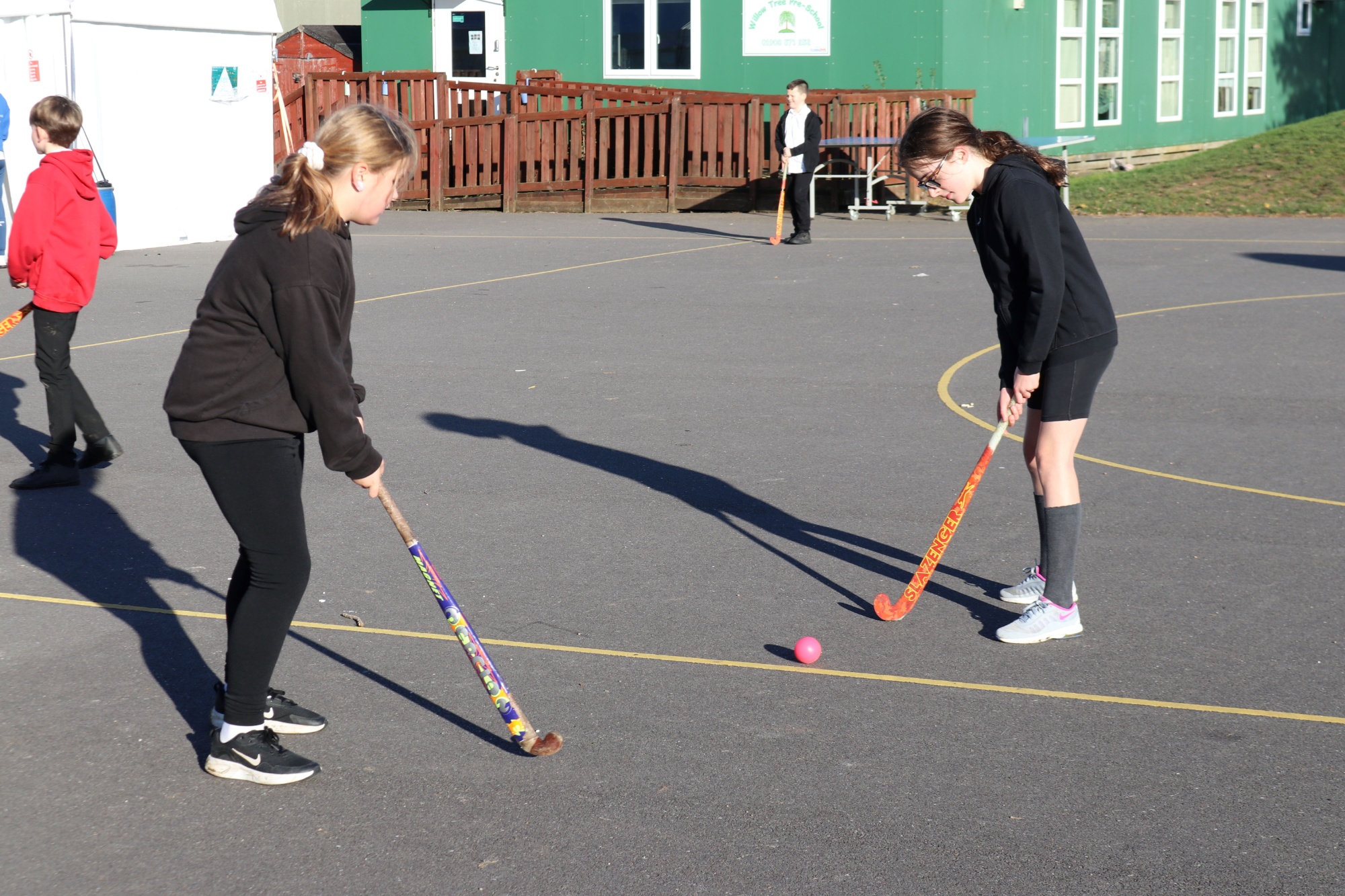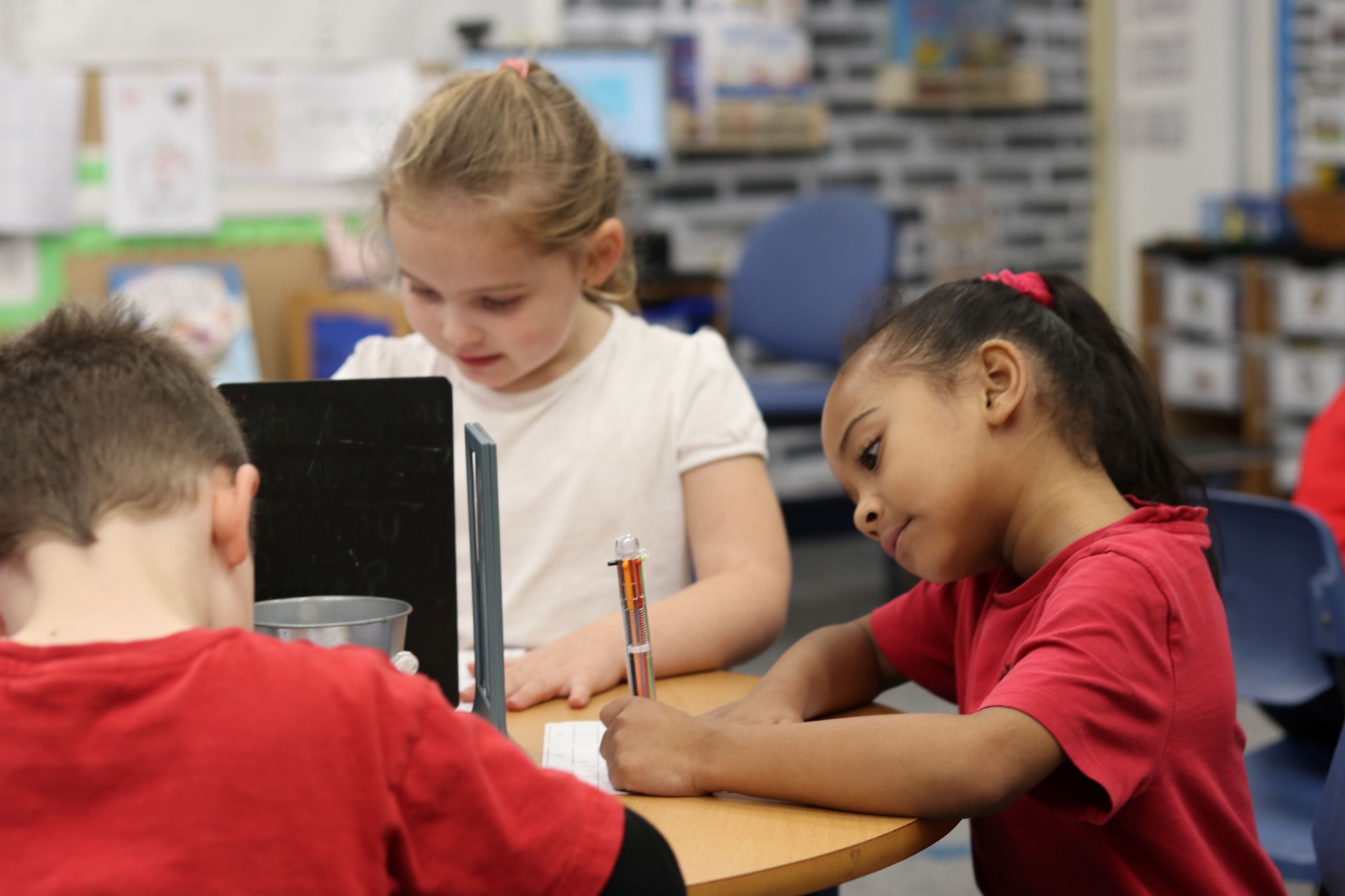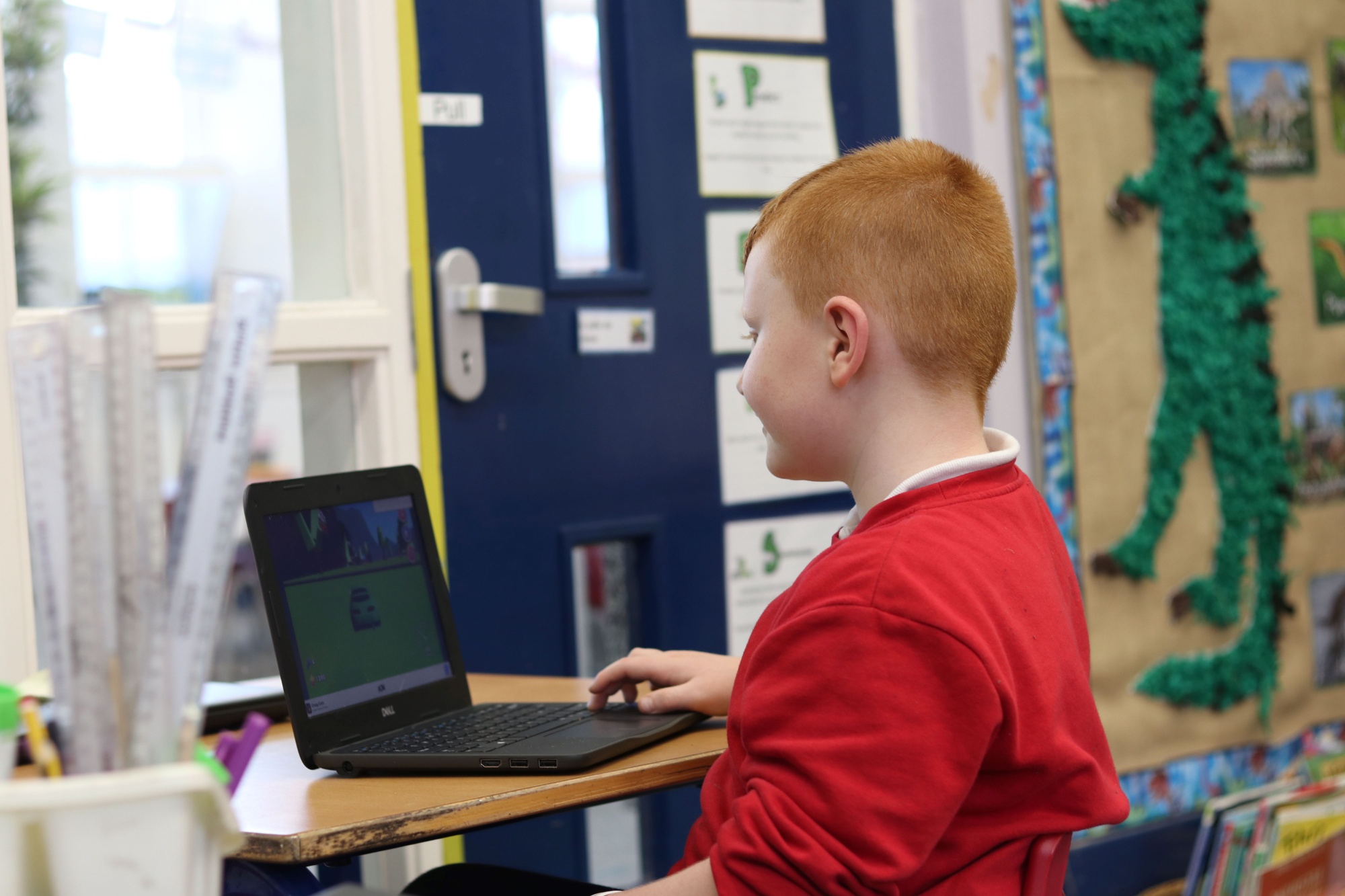English
Intent
Our English curriculum develops children's love of reading, writing and discussion. We aim to inspire an appreciation of our rich and varied literary heritage and develop a habit of reading widely and often. We recognise the importance of nurturing a culture where children take pride in their writing, can write clearly and accurately and are able to adapt their language and style for a range of contexts, purposes and audiences. We encourage our children to acquire a wide range of vocabulary, a solid understanding of grammar and be able to spell words effectively, applying their knowledge of rules and patterns. We believe that all good writers refine and edit their writing over time, so we want children to develop independence in being able to identify their own areas of improvement.
We believe that children need to develop a secure knowledge base in English, which follows a clear pathway of progression as they advance through the primary curriculum. We believe that a secure basis of literacy skills is crucial to high-quality education and will give our children the tools they need to participate fully as a member of society.
Through high-quality teaching, we develop the following essential characteristics of readers and writers:
- Develop a love of reading for pleasure and to acquire information
- Read fluently and deploy strategies to support the decoding of unfamiliar words.
- Comprehend texts, and to use reading skills to understand the intentions of the author
- Understand grammar and knowledge of linguistic conventions for reading, writing and spoken language
- Appreciate how an author uses grammar to impact the reader
- Purposefully use grammar and punctuation within independent writing to navigate and influence the reader
- Write accurately and coherently, adapting their language and style for a range of different purposes and audiences.
- Engage in debates and discussions, and appreciate others' viewpoints
Implementation
English is a core subject and is taught daily, but it is also integrated into other areas of the curriculum.
Our Approach to Reading Schemes
At Deanshanger Primary School, children are encouraged to read at home every day. In Reception, children begin by taking home wordless books, to allow them to spend time talking to a parent about the book, without being constrained by the necessity to read words. Once children have a good understanding of how books work and have gained some phonics knowledge, they begin to read books containing simple words which can be blended or sounded out. The reading books are colour banded and, as children become more confident and able readers, they will take home books from different colour bands. The books are phonics-based books that are linked directly to the sounds that the children are learning in class. Once children become fluent readers, a range of books are provided to allow children to engage in more lengthy discussions about the content of the book. Children in Reception and Key Stage 1 also have access to ‘Reading Eggs’ to provide further reading opportunities. Each child will also bring home a sharing book each week from the library of their choice.
Once children have entered Key Stage 2, they will follow the Accelerated Reading Programme. This programme focusses more on the children's comprehension skills and is supported by an online assessment tool to ensure each child is accessing the correct book of complexity to develop their comprehension skills.
Throughout the school day, children will have the opportunity to read in many different lessons. They will also have dedicated quiet time to read to encourage their ability to read for a sustained time. Each class will visit the school library on a weekly basis to choose a book of their choice. At Deanshanger Primary School, we want our children to access books that are also beyond their reading ability. Therefore, each class will study a class book that will be read by the teacher.
Writing
We deliver our writing with the support of high-quality texts which are selected to compliment the Deanshanger Curriculum so that children engage in meaningful discussions, learn key vocabulary, understand grammar and punctuation skills and inspire independent writing. The key aspects of our curriculum are:
- Building confidence with sentence structure.
- Pupils gain an understanding of the 'whole' piece that they are writing.
- Organisation between ideas and cohesion between them is strengthened.
Impact
- Children will make at least good progress in Reading, Writing and Speaking and Listening from their last starting point of statutory assessment or from their starting point in EYFS.
- Children will have a love of reading.
- Children will have a knowledge of key authors and engage in conversations about their texts.
- Children will have the knowledge and skills to read a range of texts and to be able to explain and justify their thoughts on their own and others' written work.
- Children will appreciate how writing impacts the reader.
- Children will be able to produce written work in all areas of the curriculum of a similar standard to that written in English books to enable them to remember more.
- Children will use their reading skills as a tool in helping them to learn, and as a result, know more, remember more and understand more.
Our Approach to Phonics
Intent
At Deanshanger Primary School we believe that all our children can become fluent readers and writers. This is why we teach reading through Little Wandle Letters and Sounds Revised, which is a systematic synthetic phonics programme. We start teaching Little Wandle Foundations in our Nursery and then, from Reception, we follow the Little Wandle Letters and Sounds Revised progression, which ensures children build on their growing knowledge of the alphabetic code, mastering phonics to read and spell as they move through school. As a result, all our children are able to tackle any unfamiliar words as they read.
At Deanshanger we also model the application of the alphabetic code through phonics in shared reading and writing, both inside and outside the phonics lesson and across the curriculum. We have a strong focus on language development for our children because we know that speaking and listening are crucial skills for reading and writing in all subjects.
Implementation
Daily phonics lessons in Reception and Year 1
- We teach phonics for 30 minutes a day. In Reception, we build from 10-minute lessons, with additional daily oral blending games, to full-length lessons as quickly as possible. Each Friday, we review the week’s teaching to help children become fluent readers.
- Children make a strong start in Reception: teaching begins in week 2 of the Autumn term.
- We follow the Little Wandle Letters and Sounds Revised expectations of progress:
- Children in Receptin are taught to read and spell words using Phase 2 and 3 GPCs, and words with adjacent consonants (Phase 4) with fluency and accuracy.
- Children in Year 1 review Phases 3 and 4 and are taught t read and spell words using Phase 5 GPCs with fluency and accuracy.
Daily keep-up lessons ensure every child learns to read
- Any child in Reception and Year 1 who needs additional practice has daily keep-up support and is taught by a fully trained adult.
- Daily Keep-up lessons follow the Little Wandle progression and use the same procedures, resources and mantras, but in smaller steps with more repetition, so that every child secures their learning.
Daily phonics and spelling in Year 2
- Year 2 begins by using assessment to ensure that children have completed the Little Wandle Year 1 progression. Any gaps in teaching are addressed through daily phonics lessons until the programme is completed. Corresponding summative assessments are carried out to ensure this content is secure.
- Once all Year 1 content has been taught and assessed, we teach a five-week Phase 5 review. This ensures that children secure the trickier elements of Phase 5 and can apply this alphabetic knowledge in both reading and spelling.
- We use the Phase 5 review assessment before teaching in Year 2 to identify any children who may need more support when teaching. We reassess after teaching the Phase 5 review.
- Once the Phase 5 review is secure, we teach the Bridge to spell before moving to the Spelling units.
- Children with larger gaps in their phonic knowledge than their peers have daily phonics teaching and follow the Rapid Catch-up programme.
Children in Year 2 to Year 6: Rapid Catch-up
- We timetable daily phonics lessons for any child in Year 2 and above who is not at age-related expectations for reading or has not passed the Phonics Screening Check. These children urgently need to catch up, so the gap between themselves and their peers does not widen.
- These short, sharp lessons last 15 to 20 minutes daily and have been designed to ensure children quickly catch up to age-related expectations in reading.
- We assess children who are new to our school, new to the country or new to English using the Rapid Catch-up assessments to quickly identify their needs.
- We use the Rapid Catch-up assessments to identify the gaps in children’s phonic knowledge and teach these using the Rapid Catch-up resources – at pace.
- We assess children every four weeks using the Rapid Catch-up summative assessments to assess progress and inform teaching.
Teaching reading: Reading practice sessions three times a week
- We have reading practice sessions three times a week. These sessions:
- They are taught by a fully trained adult to small groups of approximately six children.
- Use books matched to the children’s secure phonic knowledge using the Little Wandle Letters and Sounds Revised assessments and book matching grids on pages 11 to 20 of ‘Application of phonics to reading’
- They are monitored by the class teacher, who rotates and works with each group on a regular basis.
- Each reading practice session has a clear focus, so that the demands of the session do not overload the children’s working memory. The reading practice sessions have been designed to focus on three key reading skills:
- Decoding: teaching children to use phonic knowledge to read words
- Prsody: teaching children to read with understanding and expression
- Comprehension: using dialogic talk to help children to understand the text.
- In Reception, these sessions start in week 4 of teaching at the latest. Initially, children will read wordless books. In these sessions, children review GPCs and are taught blending using teacher-led blending. Once children can blend, they progress into decodable books matched to their secure phonic knowledge.
- Children read each book three times to develop phonemic awareness, vocabulary and comprehension as well as book behaviours.
- In Year 2, we ensure children complete reading the core programme of decodable books (up to Phase 5 Set 5). To exit the programme, we complete the final fluency assessment to ensure children can read with adequate speed and accuracy: approximately 60 words per minute with 90%+ accuracy.
- Reading in Rapid Catch-up lessons mirrors the core programme. Children following the Rapid Catch-up programme are taught to read using the 7+ fully decodable books. These follow the same progression as the core programme but are more appropriate for older readers.
Impact
Assessment
Assessment is used to monitor progress and to identify any child needing additional support as soon as they need it.
- Assessment for Learning (AfL) is used:
- Daily within class t identify children who require daily keep-up support, as well as words and GPCs that need additional teaching
- To plan repeated practice throughout the day to ensure all children have secure learning
- Weekly in the Friday review lesson to assess gaps, address these immediately and secure fluency of GPCs, words and spellings.
- Summative assessments are uploaded onto the Assessment tracker for Reception and Year 1. These are used:
- To generate visual reports (pupil heat maps, pupil trends and book levels, and a summary analysis) for individual children, classes and whole year groups
- By teachers, Reading Leaders and SLT who drill down and look at the data at GPC, word, tricky word and sentence level.
- By SLT, to scrutinise and plan how to narrow the attainment gaps between different groups of children and to put in place any additional support for teachers.
We assess:
-
- Every six weeks to assess progress and to identify gaps in learning that need to be reviewed or retaught
- To establish if learning is secure for more than 70% of children before new content is taught
- To identify any children needing additional support and to plan the daily keep-up support that they need.
Every three weeks, we reassess every child who is not on track.
- Fluency assessments measure children’s accuracy and reading speed in short one-minute assessments. They are used to:
- In Year 1 and Year 2, when children are reading the Phase 5 Set 3, 4 and 5 books
- With children following the Rapid Catch-up programme in Years 2 to 6, when they are reading the Phase 5 Set 3, 4 and 5 books
- To assess when children are ready to exit their programme*
*Year 2 children can exit the Rapid-Catch-up programme when they can read the final fluency assessment at 60-70+ words per minute. Older children can exit the Rapid Catch-up programme when they read the final fluency assessment at 90+ words per minute. At these levels, children should have sufficient fluency to tackle any book at age-related expectations. After exiting their programme, children do not need to read any more fully decodable books.
- A placement assessment is used:
- With any child new t the school in Reception and Year 1 to quickly identify any gaps in their phonic knowledge and to plan and provide appropriate extra teaching.
Statutory assessment
- Children in Year 1 sit the Phonics Screening Check. Any child not passing the check resits it in Year 2.
